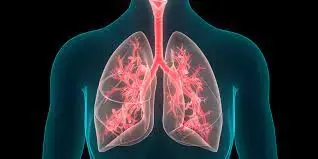- Home
- Medical news & Guidelines
- Anesthesiology
- Cardiology and CTVS
- Critical Care
- Dentistry
- Dermatology
- Diabetes and Endocrinology
- ENT
- Gastroenterology
- Medicine
- Nephrology
- Neurology
- Obstretics-Gynaecology
- Oncology
- Ophthalmology
- Orthopaedics
- Pediatrics-Neonatology
- Psychiatry
- Pulmonology
- Radiology
- Surgery
- Urology
- Laboratory Medicine
- Diet
- Nursing
- Paramedical
- Physiotherapy
- Health news
- Fact Check
- Bone Health Fact Check
- Brain Health Fact Check
- Cancer Related Fact Check
- Child Care Fact Check
- Dental and oral health fact check
- Diabetes and metabolic health fact check
- Diet and Nutrition Fact Check
- Eye and ENT Care Fact Check
- Fitness fact check
- Gut health fact check
- Heart health fact check
- Kidney health fact check
- Medical education fact check
- Men's health fact check
- Respiratory fact check
- Skin and hair care fact check
- Vaccine and Immunization fact check
- Women's health fact check
- AYUSH
- State News
- Andaman and Nicobar Islands
- Andhra Pradesh
- Arunachal Pradesh
- Assam
- Bihar
- Chandigarh
- Chattisgarh
- Dadra and Nagar Haveli
- Daman and Diu
- Delhi
- Goa
- Gujarat
- Haryana
- Himachal Pradesh
- Jammu & Kashmir
- Jharkhand
- Karnataka
- Kerala
- Ladakh
- Lakshadweep
- Madhya Pradesh
- Maharashtra
- Manipur
- Meghalaya
- Mizoram
- Nagaland
- Odisha
- Puducherry
- Punjab
- Rajasthan
- Sikkim
- Tamil Nadu
- Telangana
- Tripura
- Uttar Pradesh
- Uttrakhand
- West Bengal
- Medical Education
- Industry
Endoscopic sinus surgery plus medical therapy efficacious in chronic rhinosinusitis with nasal polyps: Study

Endoscopic sinus surgery (ESS) plus medical therapy is more efficacious than medical therapy alone in patients with chronic rhinosinusitis with nasal polyps (CRSwNP), according to a recent study published in the Lancet.
Endoscopic sinus surgery (ESS) is a common operation for patients with chronic rhinosinusitis with nasal polyps (CRSwNP) when medical therapy alone is insufficient. No randomised controlled trials on the efficacy of ESS have been published. We aimed to assess the efficacy of ESS plus medical therapy versus medical therapy alone in patients with CRSwNP.
The researchers performed an open-label, multicentre, pragmatic, randomised, controlled trial in three tertiary care centres and 12 secondary care centres in 11 cities in the Netherlands (Almere, Amstelveen, Amsterdam, Blaricum, Den Haag, Deventer, Haarlem, Hoofddorp, Hoorn, Leiderdorp, and Rotterdam). Adults (aged ≥18 years) with CRSwNP and an indication for ESS were randomly assigned (1:1) using block randomisation (block sizes of six), stratified by study centre, to receive either ESS plus medical therapy or medical therapy. ESS was performed according to local practice, although anterior ethmoidectomy was mandatory. Medical therapy was prescribed at the patient's otorhinolaryngologist's discretion, and could be, but was not limited to, nasal corticosteroids, nasal rinsing, systemic corticosteroids, or systemic antibiotics. The primary outcome was disease-specific health-related quality of life (HRQoL) at 12 months of follow up, measured with the validated Sinonasal Outcome Test 22 (SNOT-22; where each item is scored from 0 to 5, where 0 indicated no problems and 5 indicates problems as bad as can be, with a total score of 0–110 points), and the minimal clinically important difference of the SNOT-22 is 9·0 points. Primary and safety analyses were performed on an intention-to-treat (ITT) basis. The ITT population comprised all patients who were randomly assigned to treatment according to their randomisation group and without any protocol violation. This study is registered with the Netherlands Trial Register, NTR4978, and is ongoing.
Findings of the study are:
Between Feb 15, 2015, and Aug 27, 2019, 371 patients were screened for eligibility, of whom 238 were eligible, willing to participate, and randomly assigned to ESS plus medical therapy (n=121) or medical therapy (n=117) and 234 were included in the baseline ITT population (n=118 ESS plus medical therapy; n=116 medical therapy). 142 (61%) of 234 patients at baseline were men and 92 (39%) were women, and the mean age was 50·4 years (SD 12·7). 206 participants were analysed at 12 months for the primary outcome (n=103 in the ESS plus medical therapy group; n=103 in the medical therapy group). At 12 months follow-up, the mean SNOT-22 score in the ESS plus medical therapy group was 27·9 (SD 20·2; n=103) and in the medical therapy group was 31·1 (20·4; n=103), with an adjusted mean difference of –4·9 (95% CI –9·4 to –0·4), favouring ESS plus medical therapy. Adverse events were similar between the groups. The most common adverse events were minor epistaxis or gastrointestinal problems. No treatment-related deaths occurred, but one patient died due to congestive heart failure.
Thus, the researchers concluded that ESS plus medical therapy is more efficacious than medical therapy alone in patients with CRSwNP, although the minimal clinically important difference was not met. Long-term follow-up data are needed to determine whether the effect persists. The current results are a basis for further development of evidence-based guidelines.
Reference:
Endoscopic sinus surgery with medical therapy versus medical therapy for chronic rhinosinusitis with nasal polyps: a multicentre, randomised, controlled trial by Evelijn S Lourijsen, et. al published in The Lancet Respiratory Medicine.
https://www.thelancet.com/journals/lanres/article/PIIS2213-2600(21)00457-4/fulltext
Dr. Shravani Dali has completed her BDS from Pravara institute of medical sciences, loni. Following which she extensively worked in the healthcare sector for 2+ years. She has been actively involved in writing blogs in field of health and wellness. Currently she is pursuing her Masters of public health-health administration from Tata institute of social sciences. She can be contacted at editorial@medicaldialogues.in.
Dr Kamal Kant Kohli-MBBS, DTCD- a chest specialist with more than 30 years of practice and a flair for writing clinical articles, Dr Kamal Kant Kohli joined Medical Dialogues as a Chief Editor of Medical News. Besides writing articles, as an editor, he proofreads and verifies all the medical content published on Medical Dialogues including those coming from journals, studies,medical conferences,guidelines etc. Email: drkohli@medicaldialogues.in. Contact no. 011-43720751


